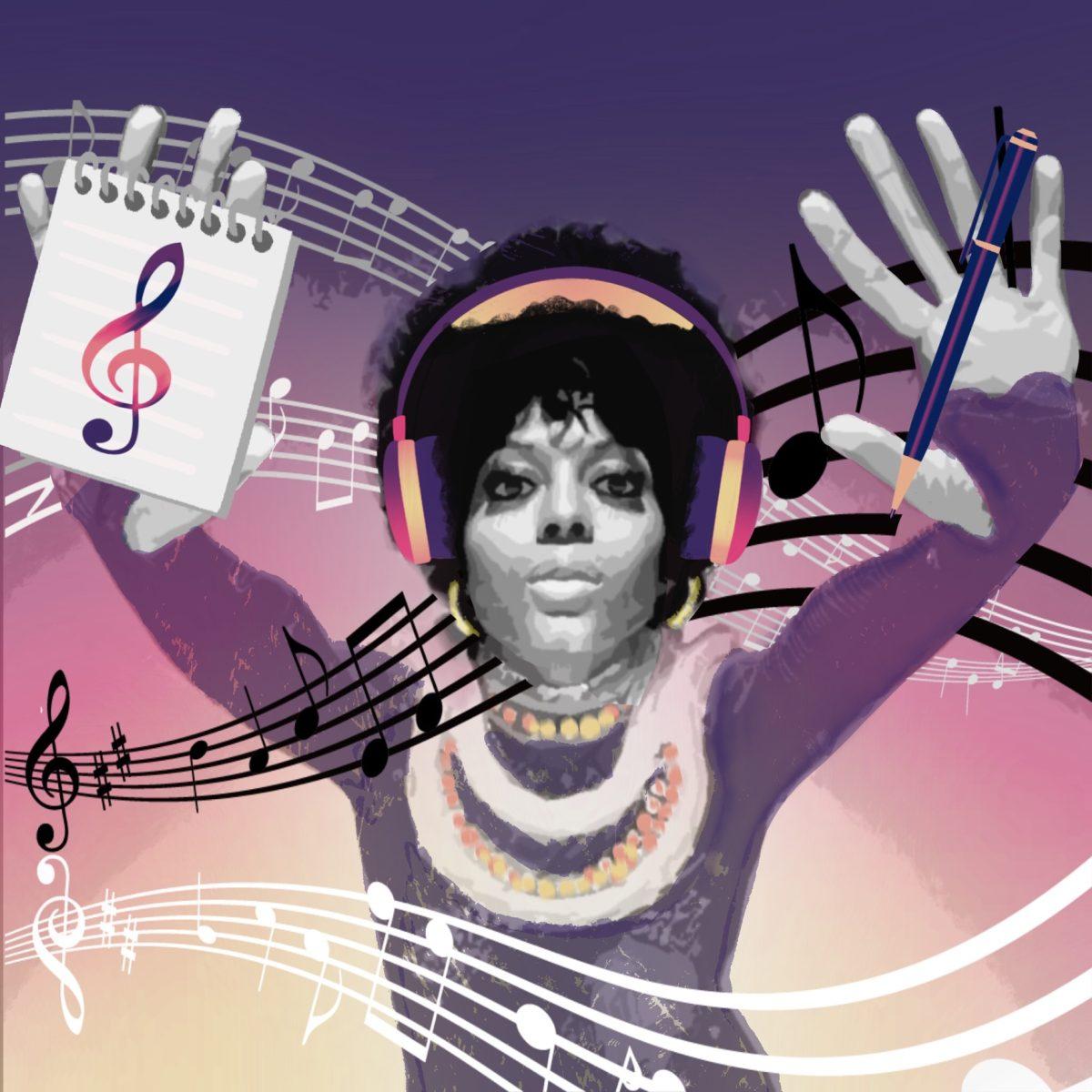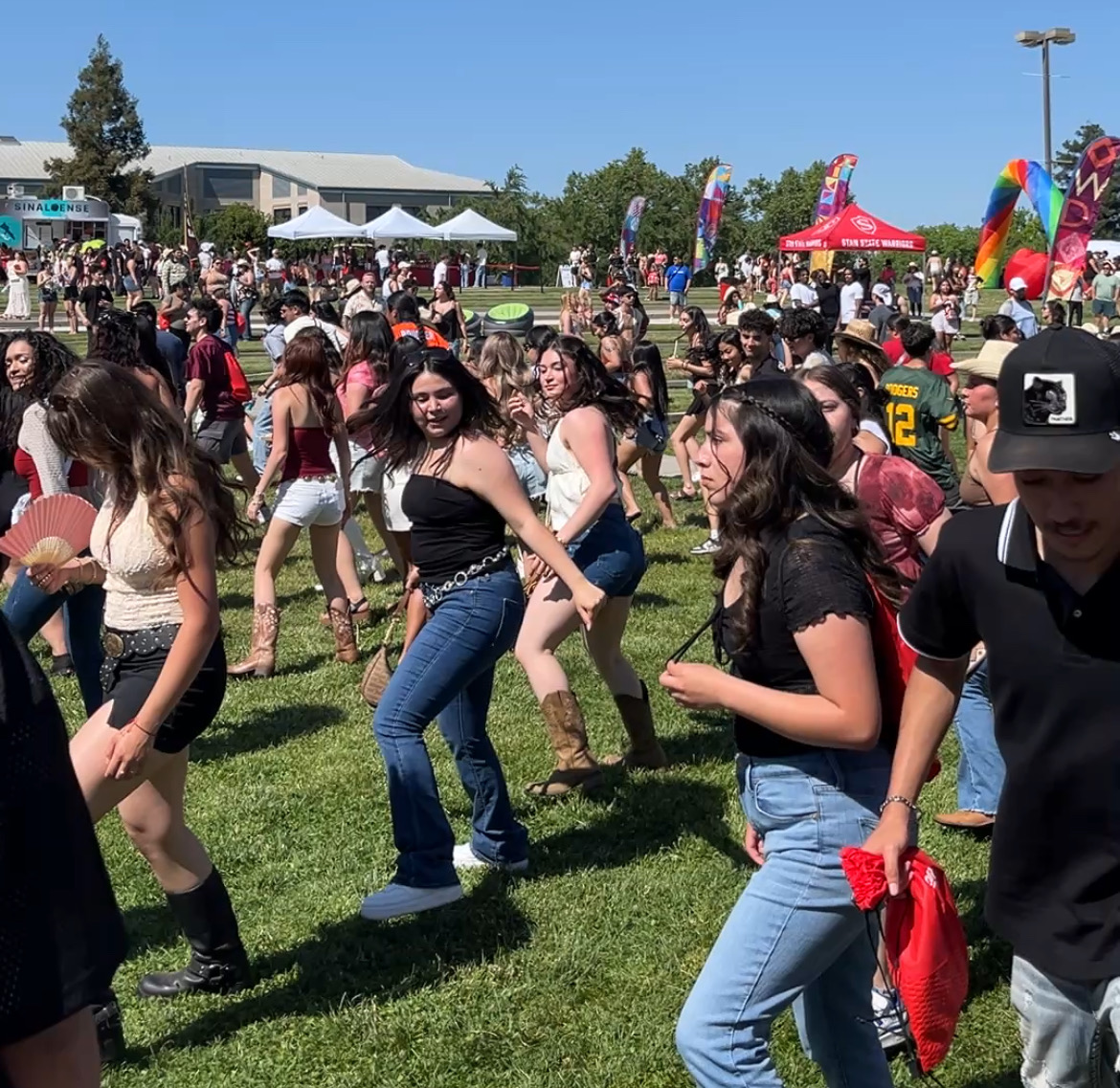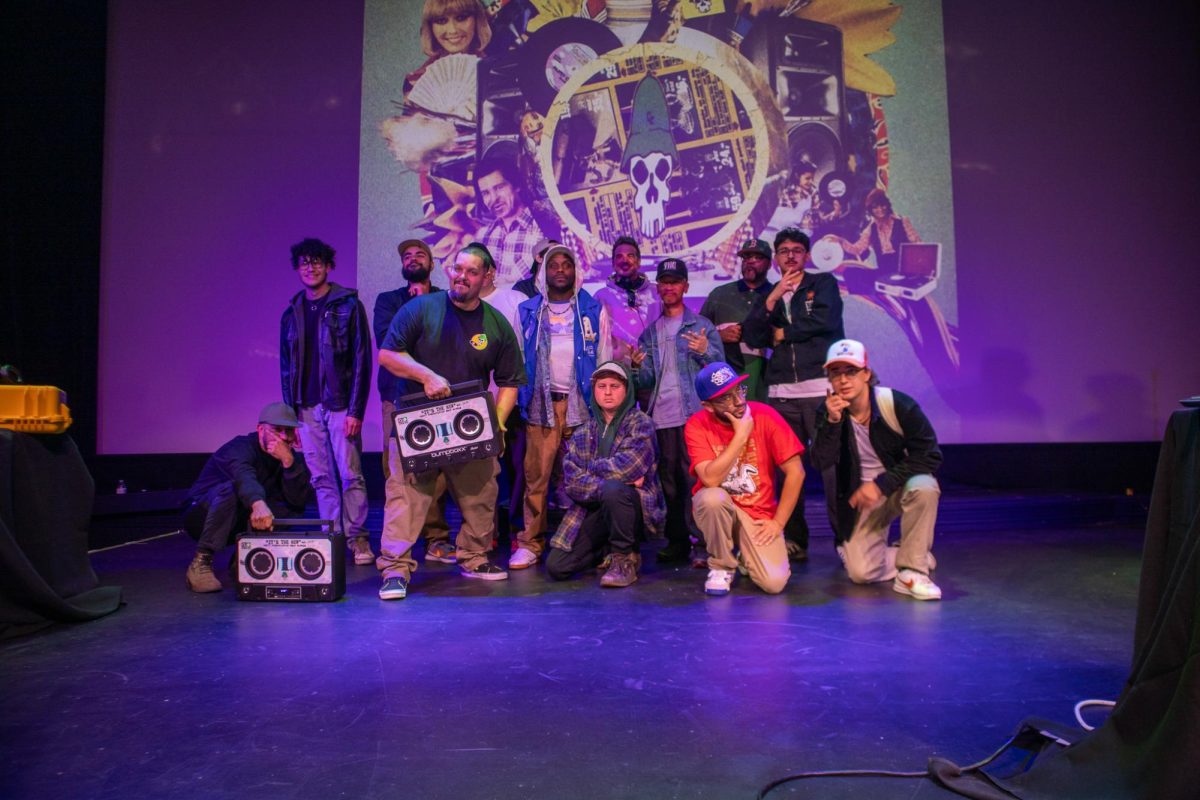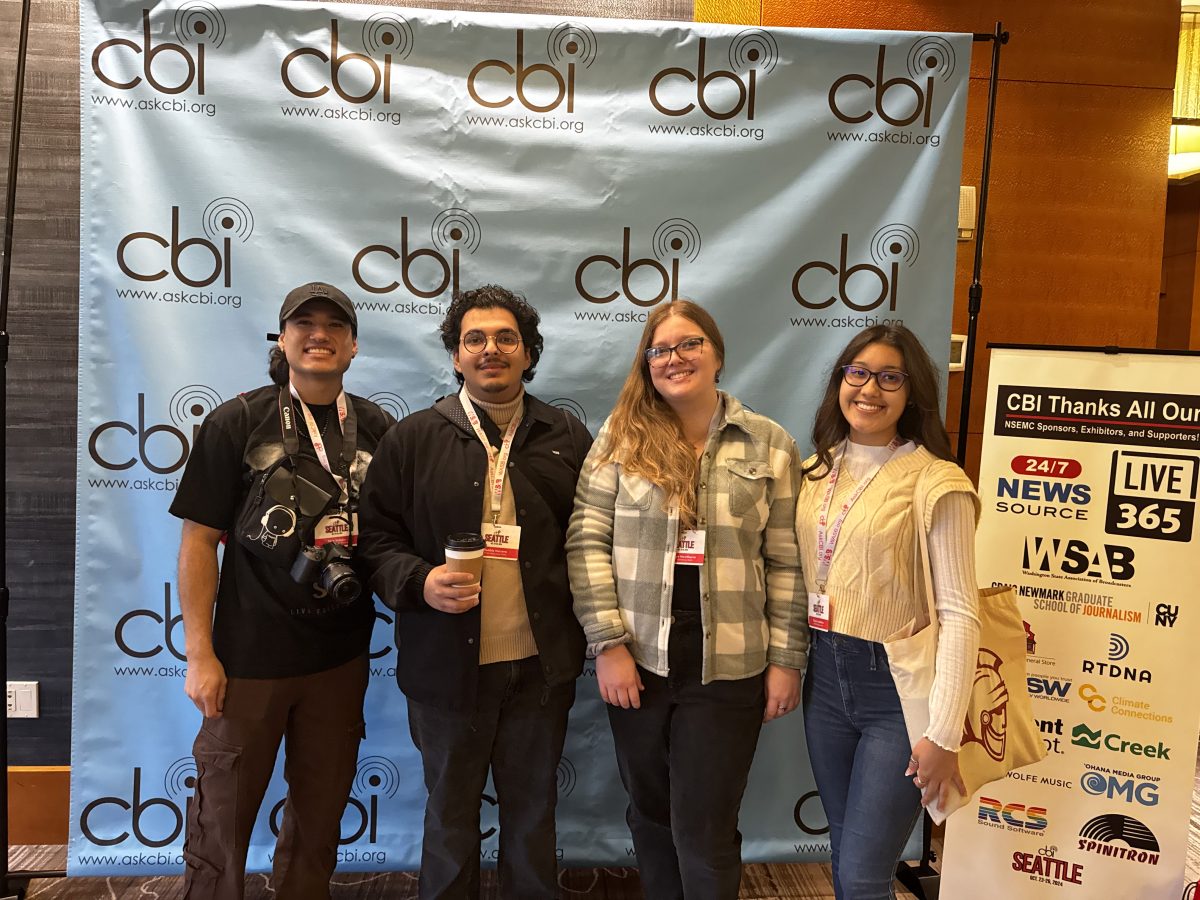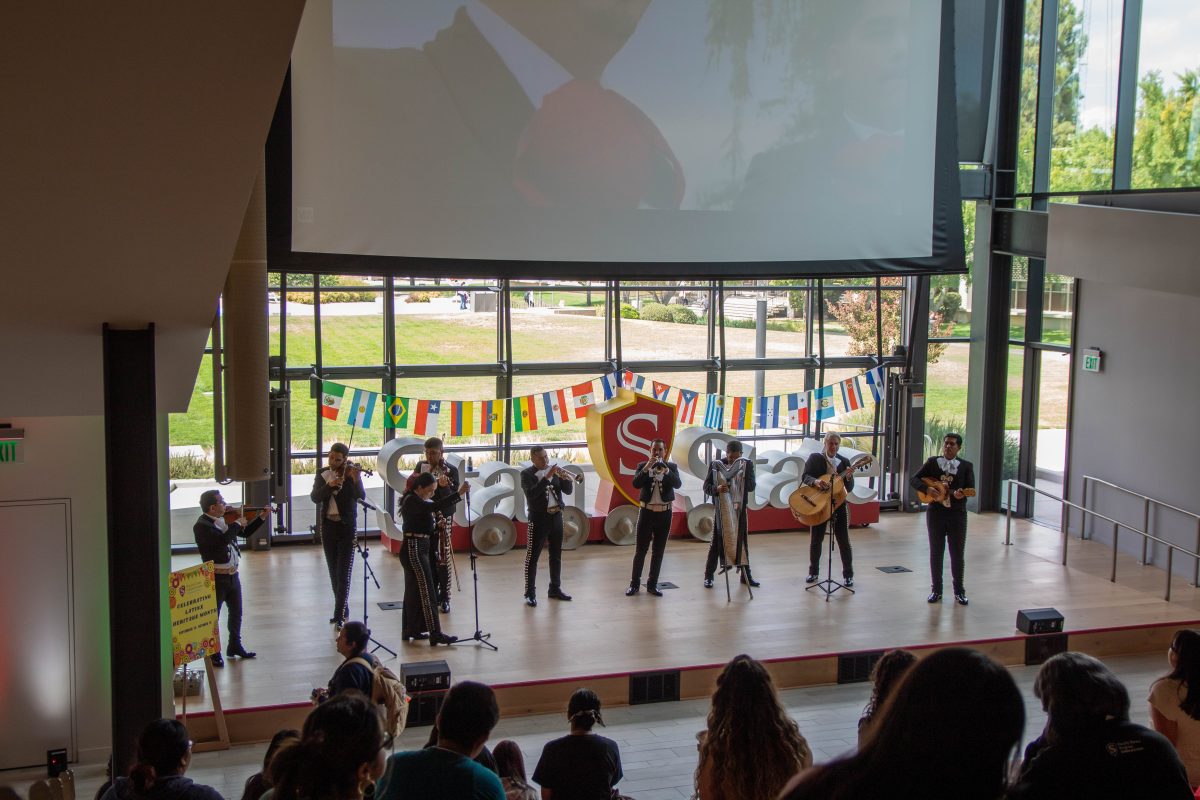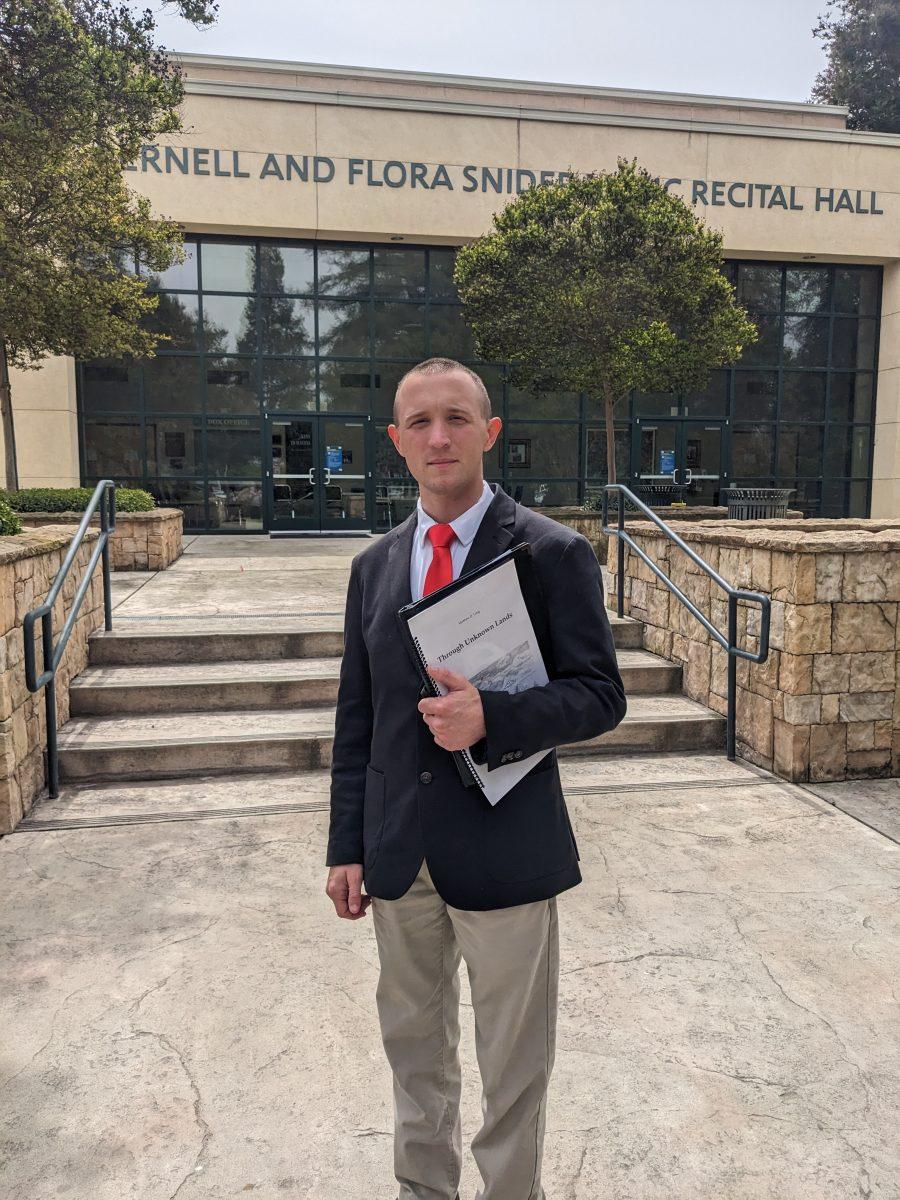Music seems to be having a significant impact on the lives of Stanislaus State students. According to a Signal poll, 87% of students listen to music on a daily basis. 100% of those students say that music has cheered them up when they were in a bad mood.
Not So Music Theory!
Any genre of music can change a person’s mood from sad to happy, or from happy to sad depending on the lyrics. Sometimes it’s the chords used in the songs listened to that changes a mood.For example, minor keys are said to often be associated with darker or gloomy moods. Major keys are said to often be related to high-spirited and cheerful moods.
Katrina and the Waves’ song “I’m Walking on Sunshine” was written in the key of B♭major, whilst Jazmine Sullivan’s “In Love With Another Man” was written in the key of C minor. Walking on Sunshine is portrayed as a happy thought. In love with Another Man is portrayed as a sad thought.
If it wasn’t already confusing enough, major and minor moods are interchangeable. No, a song does not have to be in a minor key to be gut-wrenching, and a song does not have to be in a major key for the song to be uplifting.
In fact, there are plenty of “happy” songs that were written in minor keys. Pharell Williams’ song “Happy,” was written in F minor. However, music will impact different people in different ways and whether a song is in a major or minor is only a music theory technicality.
Check out this free YouTube video from Pianote “Happy Songs Played in Minor Keys” to get a better understanding of the differences between minor and major keys.
Music Gels People Together
Many genres like R&B, hip-hop and rock often speak on topics such as relationship goals, heartbreaks, memories, love and even death. Many individuals have experienced these emotions. Because of that, music may have the power to transcend time, bring people together, and help people get through bad experiences.
Just think, someone is sitting on a stoop in a DVD rapping some lyrics they wrote and Lil’ Wayne sees it and wants to sign them to his label. Well, that might be Nicki Minaj’s “Come Up” story, but it could also be someone else’s. Just think of all the groups, bands, managers and artists that were gelled together because of music.
Musicians and their concerts are another example of bringing people together. While many folks go to their favorite artists’ concerts to for the experience, the main thing that brought them there was the actual music. The feeling the music is able to provide and the experience of hearing that music from a particular artist is what gels people together.
Music is Old!
Music dates back to over 35,000 years ago. Since then, the human race has had a lot of time to become dependent upon music.
African tribes would use music as a way to show happiness during a celebration, pain during sadness and sorrow, and all types of other emotions, similar to today’s time. Music is able to tell the stories and thoughts of its listeners and creators.
“Music has been a part of human life longer than anyone can prove,” said Stan State alumna Maritza Tapia. “On a larger scale, everyone can relate to music because it is built into us and is an important way we make sense of our world. Music is also an entryway to culture itself, forming a complicated and webbed relationship between each genre that exists. It makes us feel understood, accepted and a lot of times less alone as people.”
Stan State student Larissa Vasquez (senior, English) shared similar sentiments.
“I use music in my daily life, for like my mood. Whether I’m going somewhere, I will stay parked and connect my bluetooth just so I can put my music on my playlists instead of listening to the radio or something,” Vazquez said.
“It’s funny because I’ll literally be parked in my car with my sister or my mom then they’re like ‘Okay lets go,’ and I’m like okay let me connect my music first.”
Music Anytime & Anywhere!
Although music can be distracting, 84% of students say playing music while studying is helpful for them, while other students say they need silence to study.
Students tend to find ways to play music in different environments, such as while they work, study, workout and drive. Students say creating music playlists for different things makes life much easier.
Music is often thought of as a universal language. People say music has the power to say what a person is feeling or thinking. Music can also be nostalgic as it can bring people back to a past moment with just a simple tune or lyric. However, music does not impact everyone the same way.
“Music often takes you back to a certain time in your life, whether it evokes good or bad feelings, it’s an important part of recalling a certain time in your life,” Stan State student Kristin Platts said. “If I hear new music for the first time, I just love the thrill of discovering a new song or artist that might become a new favorite.”
Classmate Trent Murphy (junior, Political Science) had a different view on music.
“To be honest, I only listen to music when I’m driving, working out or when I’m feeling sad, so it’s not necessarily an everyday thing for me,” Murphy said. “Listening to podcasts have replaced a lot of the time I used to listen to music, but I still do at times when I need an emotional pick-me-up.”
Other thoughts from students and community members
“I feel music is important because it makes us feel good and kind of relieves our pent up energy,” said Stan State student Kimberly Horne. “It also helps us get tuned into our emotions and some songs can be inspiring for creative projects. For myself personally, listening to music gives me ideas and tells stories about these characters I created.”
Monica Motta had this to say, “Music is important to me because it can turn your bad day into a good one or amplify what your feeling. It makes you feel less lonely in the world knowing someone feels the same way as you. Music creates communities and can bring people together around the world. Music just makes everything better.”
In short, music is heard all over the world. Listeners and creators of music are exposed to a wide array of music through social media, YouTube, friends & family, and more. Music was here in the past and it will continue to be in the future.
For those of you curious about the impact or role of music in your lives, take the impact of music questionnaire.

